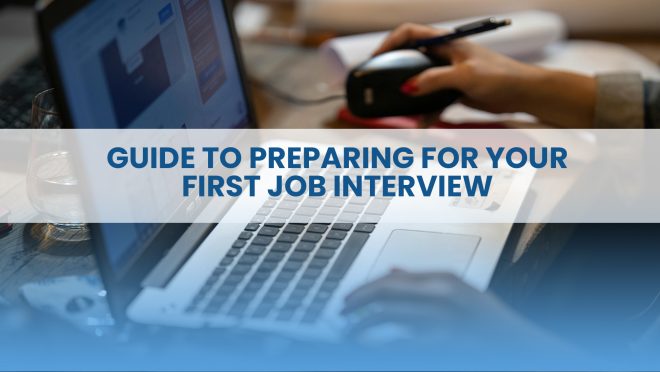Guide to preparing for your first job interview
Guide to preparing for your first job interview

Whether you have finished your graduation or are still studying; sooner or later you are going to have to start looking for a job. There are usually several tests that lead to a shortlist of candidates who are deemed worthy of a meeting. If you have been invited for an interview, you have already made it quite far and you should be proud of yourself. But now comes the scariest part – an interview. This is where most people get stuck. It is particularly difficult if this is your first time.
Here are some tips to help you prepare for your first interview.
Prepare your outfit
For most interviews, outfit is a crucial factor. As superficial as it sounds, first impressions matter and how you dress up gives the first impression. So, prepare your outfit before your interview. Do not leave it till the day of the interview. Avoid thoughts like – I will pick what to wear when I am getting ready. It is more difficult than it sounds and the indecision alone will make you tense before the interview; something we are trying to avoid. Pick your outfit the day before, and make sure they are properly cleaned and pressed.
Look sharp, not casual
We recommend light-coloured shirts with single or no pockets at all. Avoid extravagant fabrics. Simplicity is your best friend. A professional-looking tie might be a good idea depending on where you are interviewing. The same goes for suits. If it is winter, definitely consider a business suit. During warmer days, suits might be skipped if your shirt gives you a clean sharp look. Try to pick solid-coloured pants. Pinstripes can also give you a sharp look if it compliments your shirt. One or two accessories that combine with your outfit are recommended but be careful about them. When in doubt, avoid accessories.
Know your employer
Before you go for an interview, look up your employer and gather as much information as possible. Do they have a website? Do they have a social media presence? Was there any news published about them in the newspapers? Do they operate internationally? What does their logo stand for? Ask yourself these questions and learn about your employer as much as possible. You will likely be asked: “What do you know about us (this company)?” and they expect a serious answer.
Practise your introduction
If there is one question you can be sure to be asked, it is this one: “Tell us about yourself”. And since it is a common question, your answer has to be smooth if you want to stand out from the crowd. This is the question where you have the opportunity to tell them everything you could not include in your resume. Prepare beforehand so you do not stutter and be mindful of not making your speech boring. People do not want to hear you recite your resume in the interview. They want a smooth conversation. So, practice till you can talk about yourself smoothly.
Gather your documents
Sooner or later, your employer will ask you for several documents related to your identity, educational certificates and transcripts, TAX-related documents and of course a printed copy of your resume. Depending on your employer, the required documents might vary. Some employers will give you a checklist and ask you to bring all the documents while attending the interview. Others might not require any additional documents other than your CV. Whatever they want, make sure you have gathered all your necessary documents at least one day before your interview and keep them together in a file. Rushing to gather documents at the last moment is a very bad practice.
Study if possible but do not stress
If possible, go through some important topics of your major. Especially topics that might be relevant to the industry you are applying in. Most job advertisements outline what they are expecting from you. Based on those requirements, you can figure out the topics that might be relevant. Try to go through them but refrain from attempting to memorise anything at the last moment. Take a look at the daily newspaper the day before and on the day of the interview. The recent news might come up during your interview.
Seek advice
Most people dread interviews but some excel at every interview they attend and they have learned to revel in it. Whether you have a relative, a senior from your university or just a friend who has already faced plenty of interviews, reach out to them. Ask them about everything you want to know about interviews and discuss your preparation with them. This will help you identify your weakness and you will know where you need to make improvements. Doing this before interviews can be both a way of solidifying your preparation as well as boosting your confidence.
Try to be on time. Remember that it is not anything special if you arrive early but it is a big deal if you are late. Being late to an interview is the most certain way to start with a bad impression. Consider the traffic and transportation before leaving for an interview and plan accordingly. We wish you all the best for your first interview.


